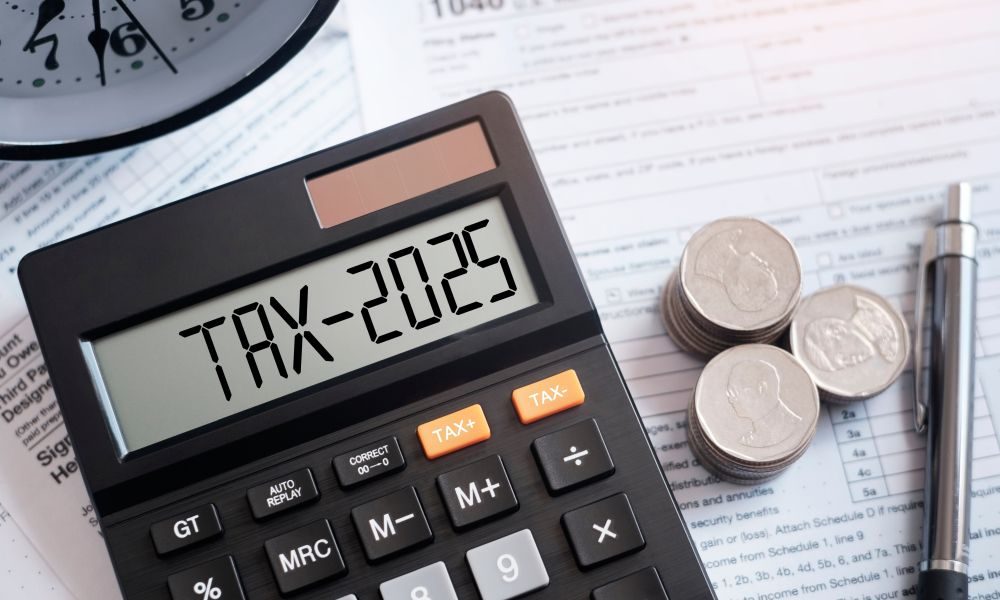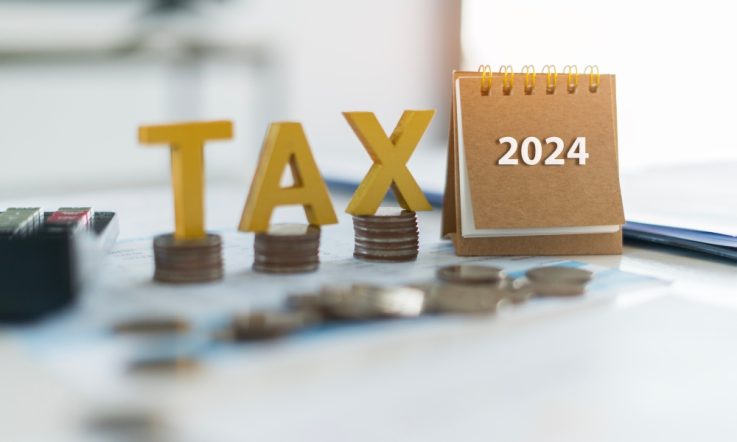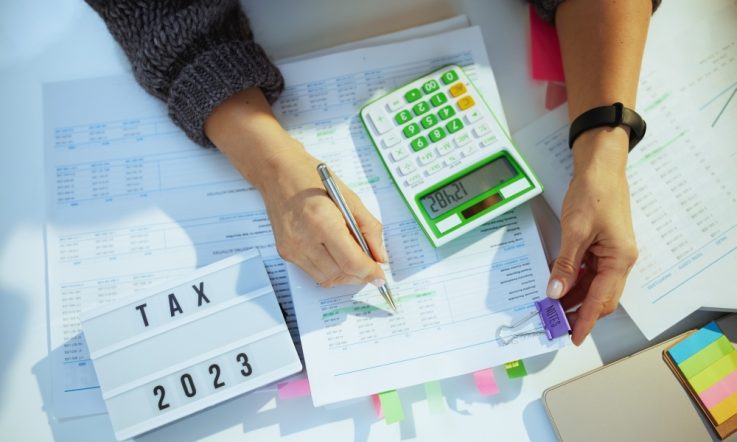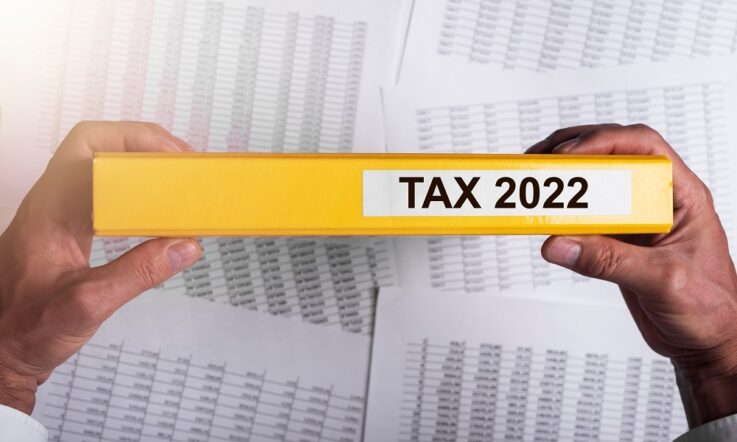Tax time is quickly approaching here in Australia, and it’s a process many can find confusing and overwhelming. There are so many things to consider – from the best time to lodge your return to getting your head around depreciation.
Tax returns in Australia can vary greatly depending on your occupation. In this Q&A, Director of Tax Communications at H&R Block, Mark Chapman, shares his tips specifically for teachers in 2025.
What are some of your best tax tips specifically for teachers?
There are a number of deductions that are specifically relevant to teachers and people working in education. These can have a significant benefit on your final refund.
Teacher-specific expenses you can claim as deductions:
- Self-education expenses if your course or conference relates directly to your current job
- Running costs of your home office if you have to work from home, including work-related phone calls and internet access charges, electricity for heating and cooling, and lighting costs. You can either claim actual expenses or the ATO’s cents per hour rate (70c per hour). If you claim the fixed rate, you must keep a detailed record of your working from home hours for the whole year (for example, timesheets or a diary)
- Equipment purchased specifically for your work such as computers, laptops, tablets, mobile phones and printers (depreciation).
- Expenses for your car when you:
- Drive between separate jobs on the same day (for example, travelling from your job as a teacher to a second job as a musician)
- Drive to and from alternate workplaces for the same employer on the same day (for example, driving from your school to another school to moderate exam results)
There are limited circumstances where you can claim the cost of trips between home and work, such as where you carry bulky tools or equipment for work (for example, a set of sporting equipment needed for a carnival). The cost of these trips is deductible only if:
- your employer requires you to transport the equipment for work,
- the equipment was essential to earning your income,
- there was no secure area to store the equipment at the work location, and
- the equipment is bulky (at least 20 kilograms) or cumbersome to transport.
If you claim car expenses, you need to keep a logbook to determine the work-related percentage and receipts for all expenses if you claim actual costs, or keep a log of business-related journeys if you use the 88 cents per kilometre method to claim.
As long as the expense relates to your employment, you can also claim a deduction for the work-related portion of the cost of:
- Phone and internet usage (unless you are claiming the fixed rate for working from home, in which case these expenses are rolled up into the fixed rate)
- Excursions, school trips and camps
- First aid courses
- Protective equipment such as sunglasses and sunhats
- Teaching aids
- Technical or professional publications
- Union and professional association fees
Teacher-specific expenses you can’t claim as deductions:
- Self-education if your study is only related in a general way or is designed to help you get a new job. For example, you can't claim the cost of study to enable you to move from being a teacher's aide to being a teacher
- Home office occupancy expenses related to the cost of rates, mortgage interest, rent and insurance
- The cost of car trips between home and work, even if you live a long way from your usual workplace or have to work outside normal business hours (for example, parent-teacher interviews)
- Gifts you purchased for students
- Meeting students' personal expenses (for example, paying for lunch, excursions or schoolbooks)
Our advice is the same whether you're a first-year teacher or have been in the job for a while. As a general rule, if you're not reimbursed for out-of-pocket expenses related to work, you can claim it. Retain all of your receipts and invoices, bank and credit card statements, as well as a journal of the number of kilometres you travelled for work this year, including when and where you went and why it's work-related.
Has anything changed for this financial year that teachers should be aware of?
There aren’t any changes to the tax rules that teachers need to be aware of. However, they should bear in mind these common mistakes made by many people:
- Claim what you’re entitled to. You’re entitled to claim a deduction for any expense which you incurred in earning your income. So, if you have incurred a work-related expense, and you have the paperwork to prove it, don’t hesitate to claim it.
- Don’t embellish deductions. You can only claim what you’ve spent. So, don’t inflate deductions in order to get a bigger refund. Only claim for costs you can prove you spent by producing an invoice, receipt or bank statement for instance. Self-lodgers using the ATO’s myTax program are monitored as they prepare their return by the ATO’s computer systems to ensure they’re not over-claiming. The ATO’s computer systems compare your claims to those of others like you and if your claim rings alarm bells, myTax will give you a stern warning inviting you to rethink that deduction.
- Don’t rely on pre-filled data from the ATO. These days, with the push of a button, you can pre-fill lots of your income information straight from the ATO’s systems. Take care though and don’t assume that income data is correct or complete. Particularly if you are lodging early, always use your own information as the key source data. Some people assume that because the data comes from the ATO, it must be right. That’s a dangerous assumption, especially in July and early August. If you omit income and get questioned by the ATO, the legal burden will be on you, even though you’ve taken the information straight from the ATO’s pre-filled data.
- Don’t forget the basics. Lots of tax returns get held up by the ATO because taxpayers have made basic mistakes like these:
- Name or address changed? Tell the ATO before you lodge your return. If you lodge under different details, the ATO won’t be able to match it with your Tax File Number. Delays will ensue!
- Not included your bank account details? The ATO doesn’t send out refund cheques these days, so you need to include your bank details on your return. No bank details, no refund!
- Spelling mistake? If you’ve added an extra letter to a key field such as your name, that slip of the keyboard could consign your return to a black hole whilst the ATO tries to manually match your details
5. Remember, you can get help. Tax can be complicated. While you can complete your tax return yourself, almost three-quarters (74%) of Australians use a tax agent to prepare their tax return. An experienced agent will usually be good at sniffing out those obscure tax deductions you didn’t know you could claim. The tax agent’s fee is also tax deductible.
What should teachers know about depreciation?
Calculating depreciation can be a fiddly and time-consuming process because of the complexity of the rules and the need to roll forward calculations on a year-by-year basis. For that reason, many prefer to leave the task of working out tax depreciation to their tax agent, but you can claim for it yourself, so it can’t do any harm to understand the basics. As a general rule, if you purchase capital assets for the purposes of earning your income, you can’t claim an immediate tax deduction. Instead, you need to write off the cost of the asset over a period of time, typically several years. This tax-deductible write-off is called depreciation.
You may be able to depreciate assets if you earn income from being employed in a job, such as teaching, and use the asset as part of your job. The type of assets you might look to write off is extremely varied, depending on how you earn your taxable income, but includes most items with a limited life which can be expected to decline in value over time, such as:
- Computers
- Laptops
- Mobile phones
- Tablets
- Printer equipment
- Office furniture
If the cost of the item is less than $300, the depreciation rules don’t apply. Instead, you can immediately write off the cost of the asset in the year that it was acquired.
You can only claim depreciation to the extent that the asset is used to earn your assessable income. If the asset is also used for private or domestic purposes, you’ll need to apportion the depreciation charge and can only claim the business-related element (for instance, if you buy a laptop and use it half in your business and half for private purposes, you can only claim depreciation on half the cost).
There are 2 ways to calculate depreciation. You can either use the prime cost (or straight line) method, by which the cost is written off in equal amounts over the asset’s effective life or you can use the diminishing value method, by which the base value of the asset diminishes each year as it is reduced by the amount of the previous year’s depreciation.
The diminishing value method will produce larger deductions in the initial years of ownership but smaller ones later in the asset’s effective life. The straight line method produces a consistent deduction every year of the effective life.
The ATO produces a comprehensive list of effective lives for assets (Effective Life 2015/1 | Legal database). You can either use this list to determine the effective life of your assets or you can self-assess the effective life if you disagree with the ATO list.
What are the due dates for lodging your tax return? Is there a ‘best time’ for lodging your return?
The deadline for lodging for people who use the ATO’s myTax system is 31 October 2025. People who lodge through a tax agent have longer to lodge – they can potentially lodge all the way to 15 May 2026.
Our advice is that it is best to avoid lodging in the first weeks of July. Although tax time technically begins on 1 July, you need to be careful during the first few weeks of tax time. Lodge too early and some of the information you need to complete your return may be missing.
In relation to your wages and salary, income statements have replaced payment summaries, which means all the information is lodged digitally and automatically provided directly to the ATO. Income statements show year-to-date salary and wages, PAYG withholding tax and any employer super contributions, but employers have until July 31 to finalise this information. When this is done, the income statement will be marked as ‘tax ready’. Most employers will complete this process by the middle of July, even though they have until 31 July. Therefore, it’s important to check that your employer has finalised the information in your income statement and it is marked as ‘tax ready’ before you lodge. If you lodge before your income statement is ‘tax ready’, you are basically relying on incomplete information, which might change. This will lead to your tax return being wrong, which means it needs to be amended after it is lodged, potentially affecting the amount of your refund.
It’s not just employers who are affected; information from banks, health funds and government agencies will also be automatically inserted into your tax return and, for most people, this will happen during early July and be complete by the end of July.
The conclusion is that it is worth waiting for all the information to be downloaded into your tax return before lodging. This date is different for everyone, but at a minimum, it means waiting until the middle of July onwards.



